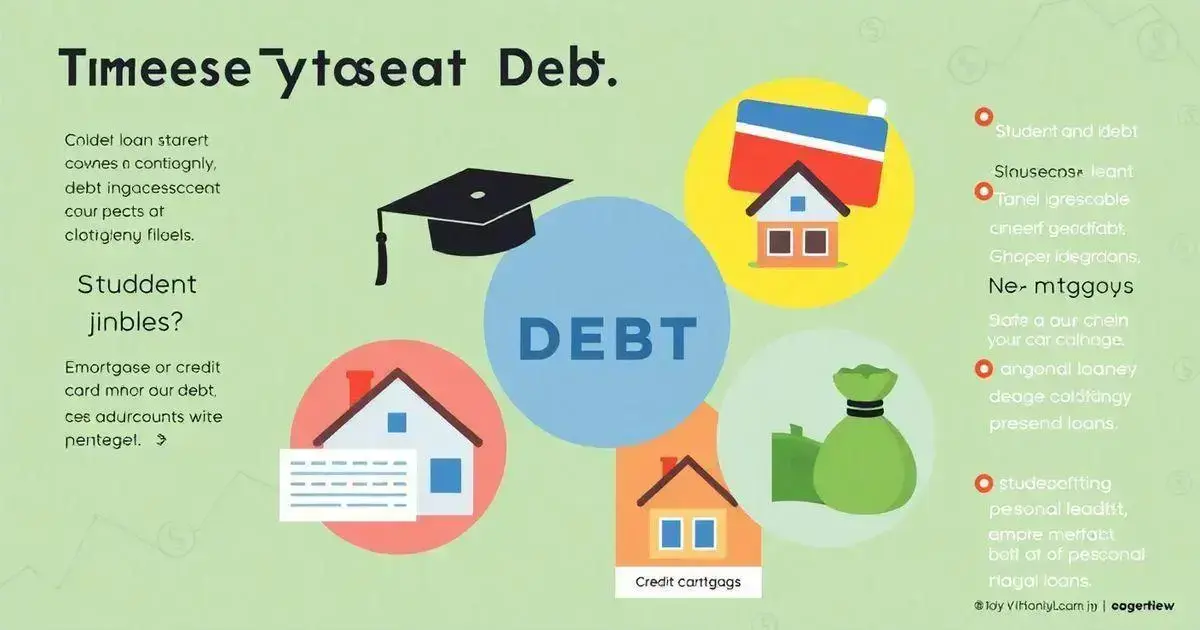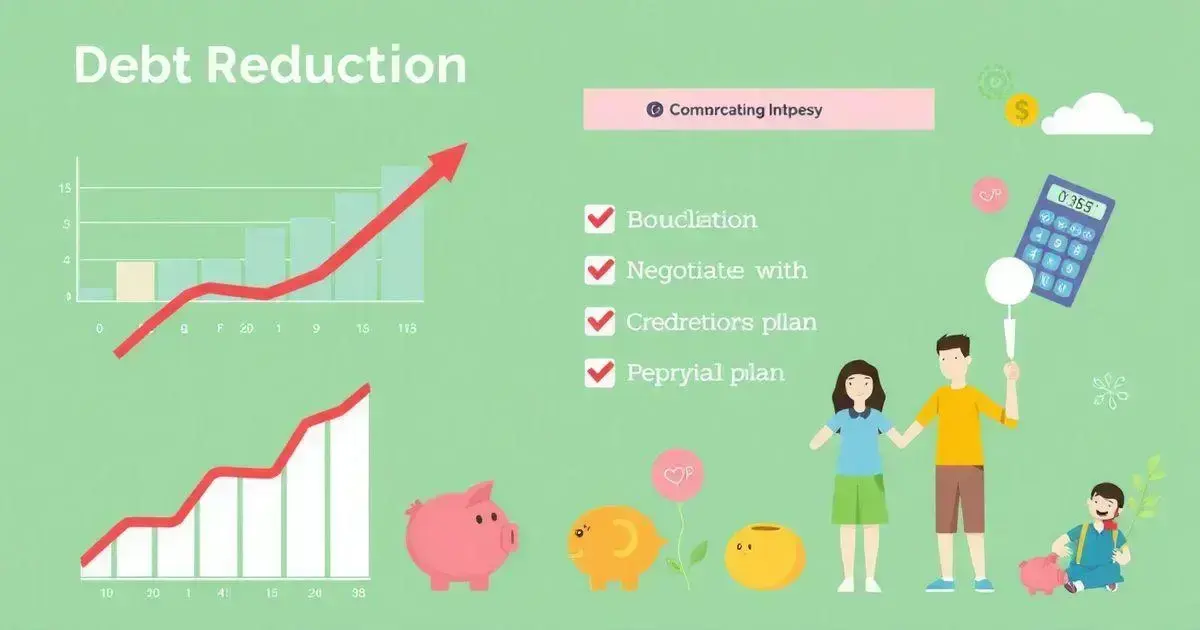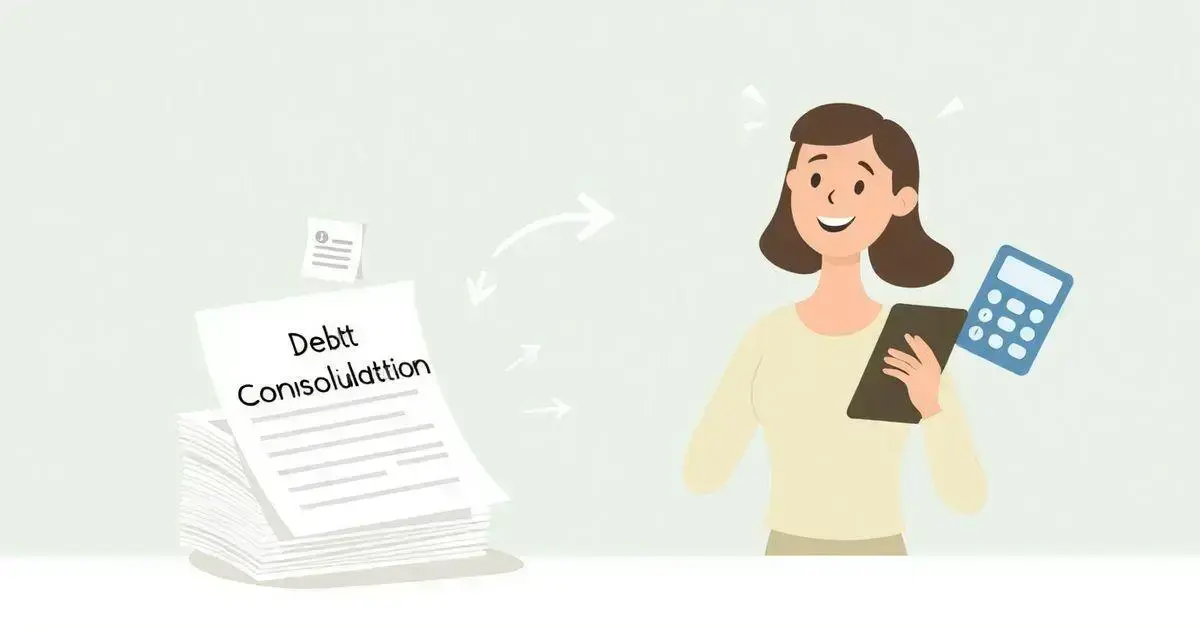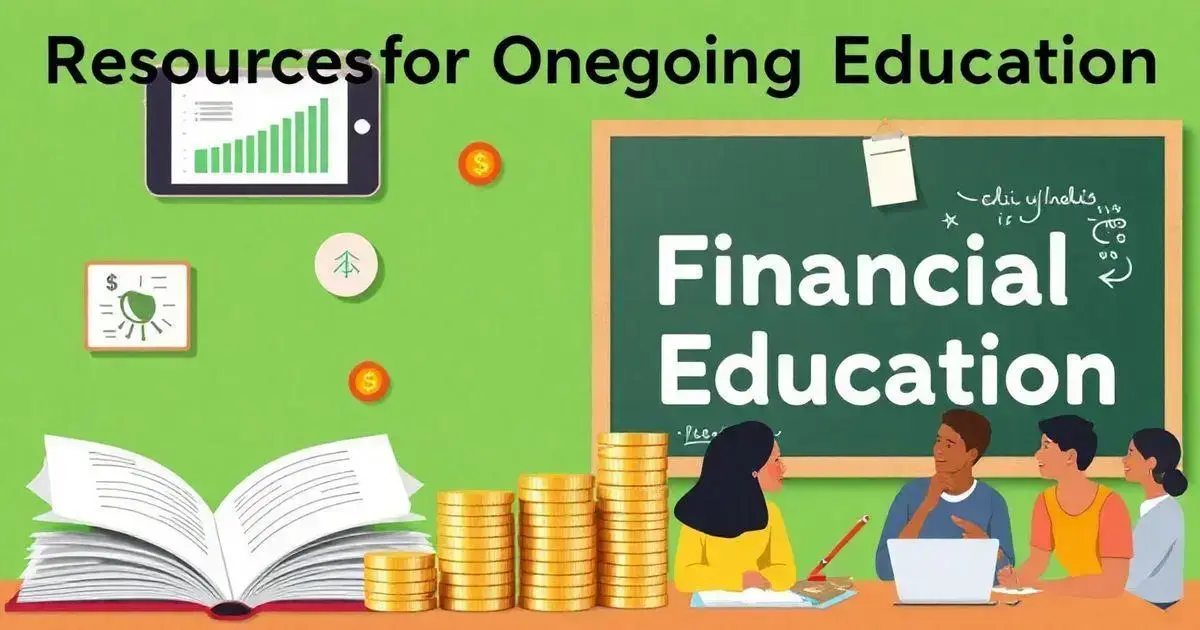How to manage debt effectively is a challenge many face on their financial journey. Understanding the impact of debt is crucial for regaining control over your finances and ensuring long-term stability.
With various types of debt and interest rates to consider, it’s easy to feel overwhelmed. But creating a solid plan and sticking to it can make all the difference in overcoming debt.
Want to know how to tackle it head-on? Keep reading for simple strategies to manage your debt and take charge of your financial future.
Understanding Debt: The Basics
Understanding debt is the first step toward financial literacy. Debt can be categorized into two main types: secured and unsecured debt. Secured debt is backed by collateral, meaning that if the borrower fails to pay, the lender can claim the asset.
Common examples include mortgages and auto loans. On the other hand, unsecured debt does not have collateral backing it, which means higher interest rates due to the increased risk for lenders. Credit card debt and personal loans fall into this category.
It is essential to realize how debt functions within our financial system. Debt is commonly used to finance purchases that one cannot afford upfront, like homes or education.
However, mismanaged debt can lead to a cycle of borrowing and repayment that becomes unmanageable. How to manage debt effectively involves understanding these risks and taking proactive steps to prevent falling into financial turmoil.
Many people encounter financial challenges and may feel overwhelmed by their debts. Therefore, understanding how interest rates work, especially with credit cards, is vital.
High-interest rates can increase the total amount owed significantly, making it harder to pay off the original amount borrowed. How to manage debt effectively requires consistent effort, informed decisions, and the right strategies to regain control and achieve financial stability.
Identifying Your Debt Types

Identifying your debt types is crucial for effective debt management. There are various categories of debt that everyone should be aware of, including: credit card debt, student loans, personal loans, and mortgages. Each type of debt has unique characteristics and implications for your finances.
- Credit Card Debt: This type is often considered unsecured debt and comes with high interest rates. It’s important to pay off your balances each month to avoid accumulating interest charges. In case of overdue payments, the debt can quickly spiral out of control.
- Student Loans: These are loans specifically taken out to pay for education. They can be private or federal, with the latter generally offering lower interest rates and more flexible repayment options.
- Personal Loans: These loans can either be secured or unsecured and are often used for things like debt consolidation or major purchases. It’s important to understand the terms and conditions of these loans before committing.
- Mortgages: Mortgages are a secured debt type where the property serves as collateral. Missing payments can lead to foreclosure, so understanding your mortgage terms is crucial.
How to manage debt effectively involves organizing your debts and understanding the specific terms for each type. Identifying your debt types allows you to prioritize repayment strategies and effectively manage your overall financial plan.
It’s essential to stay organized and informed about where your debt lies to make sound financial decisions going forward. How to manage debt effectively can significantly improve your financial well-being and reduce the stress associated with overwhelming obligations.
Creating a Budget for Debt Management
Creating a budget for debt management is a vital step toward achieving financial stability. A budget helps you track income and expenses while ensuring that you allocate funds to pay off debts. Start by listing all sources of income, including your salary, bonuses, and any side gigs. This will give you a clear picture of your total monthly earnings.
Next, list your monthly expenses. This includes fixed costs such as rent or mortgage, utilities, groceries, and transportation, as well as discretionary spending like entertainment and dining out. Be honest and thorough in this process.
Once you have a clear view of your income and expenses, categorize your spending into essentials and non-essentials. Prioritize your essentials like housing, food, and debt payments, and consider reducing or eliminating non-essentials to free up more funds for debt repayment.
How to manage debt effectively starts by organizing your budget to ensure you’re covering all necessary expenses while also making progress on your debts. After organizing your budget, set aside specific amounts for debt repayment each month.
Consider methods like the debt snowball or debt avalanche to tackle debts effectively. The debt snowball method involves paying off smaller debts first, while the debt avalanche method focuses on repaying higher interest debts first.
Make it a habit to review your budget regularly and adjust as needed. Life changes, and so should your budget. By consistently sticking to your budget, you’ll see improvements in your debt situation over time, leading you toward greater financial health. How to manage debt effectively through budgeting will help you gain control and reduce the financial strain caused by debt.
Debt Reduction Strategies You Can Use

Debt reduction strategies are crucial for those looking to regain financial control. There are several effective methods, each with its unique approach. One popular method is the debt snowball strategy, where you focus on paying off your smallest debts first. This provides quick wins that can motivate you to tackle larger debts.
Another approach is the debt avalanche method, which targets debts with the highest interest rates first, potentially saving you more money in the long run.
How to manage debt effectively involves creating a strategy that works best for your financial situation. Budgeting plays a significant role in debt reduction.
Creating a clear and realistic budget can help you allocate funds specifically for debt repayment, ensuring you maintain regular payments. Try cutting unnecessary expenses, which creates extra cash flow to put toward your debts.
Consider negotiating with your creditors. Many creditors are willing to work with you, potentially lowering interest rates or offering a settlement for less than what you owe. Don’t hesitate to reach out and discuss your situation—communication is key.
Lastly, debt consolidation can be an effective tool if managed carefully. It involves combining multiple debts into a single loan with a lower interest rate. This can simplify payments and possibly reduce your overall debt burden.
However, be cautious and ensure that the terms are favorable. Implementing these strategies consistently will help pave the way for achieving financial freedom. How to manage debt effectively through strategic planning and consistent action can lead to a brighter financial future.
How to Negotiate with Creditors
Negotiating with creditors is an important step in managing debt effectively. It allows you to potentially lower your interest rates, reduce monthly payments, or even settle debts for less than what you owe.
Start by understanding your current financial situation, including how much you owe and your ability to make payments.
Research your creditors to learn about their policies and practices. Understanding their typical procedures can help you prepare for the conversation.
Prepare to explain your situation clearly. Be honest about your financial struggles but also demonstrate your commitment to paying off the debt. This helps build trust with the creditor.
Make a reasonable offer. When negotiating, suggest a payment plan that is within your capability, whether it’s a lower payment or a lump sum. Be open to discussions.
How to manage debt effectively also involves understanding your negotiating power. Follow up in writing to confirm any agreements made during the call to protect yourself legally and to ensure both parties are on the same page.
Remember to stay calm and polite. A respectful approach can go a long way in negotiations. By negotiating effectively, you can ease your financial burden and work towards a debt-free future. How to manage debt effectively in this way can set you on a path to financial recovery.
The Role of Debt Consolidation

Debt consolidation is a financial strategy that combines multiple debts into a single loan, simplifying payments and potentially lowering interest rates.
Some benefits of debt consolidation include:
- Simplifies payments by reducing multiple debts to one.
- Potential for lower interest rates, saving money over time.
- Can improve credit scores by reducing the number of open accounts.
Common consolidation methods are:
- Bank loans
- Credit union loans
- Specialized debt consolidation companies
How to manage debt effectively involves not only consolidating your debts but also addressing the underlying reasons for your financial situation. It’s essential to practice budgeting alongside consolidation for it to be effective. By incorporating these steps, you can streamline your debt management process and make progress toward financial stability.
Preventing Future Debt Accumulation
Preventing future debt accumulation is essential for maintaining long-term financial health.
One of the most effective ways to prevent debt is by creating and sticking to a strong budget. A budget allows you to monitor your spending and ensure that you live within your means. It is important to regularly review your budget to make necessary adjustments based on changes in income or expenses.
Another important strategy is to build an emergency fund. This savings account should cover at least three to six months of living expenses. Having an emergency fund can help you handle unexpected expenses without resorting to credit cards or loans, which often lead to increased debt.
Additionally, it’s crucial to use credit responsibly. Avoid unnecessary purchases and refrain from using credit for non-essential items. Always pay your bills on time to prevent late fees and potential damage to your credit score. This practice helps maintain a positive credit history that can be useful in case you need to take on debt in the future.
Finally, educate yourself about financial literacy. Understanding how interest rates work, the impact of debt on your financial life, and the importance of savings can empower you to make better financial decisions. Attend workshops, read books, or find online resources that teach personal finance skills.
How to manage debt effectively involves not only using credit responsibly but also taking proactive steps like budgeting and building an emergency fund to ensure financial stability. By maintaining financial discipline, you can prevent future debt accumulation and work toward a secure financial future.
Resources for Ongoing Financial Education

Resources for ongoing financial education are essential for anyone looking to improve their money management skills. There are many options available, ranging from books to online courses that can help you build a solid understanding of personal finance.
Books: There are numerous books available on personal finance topics, including budgeting, investing, and debt management. Some highly recommended titles include The Total Money Makeover by Dave Ramsey and Rich Dad Poor Dad by Robert Kiyosaki. These books provide valuable insights and practical tips to help you take control of your finances.
Online Courses: Websites like Coursera, edX, and Khan Academy offer free or low-cost courses on personal finance topics. These courses can be a great way to build your knowledge at your own pace. Look for courses specifically focused on budgeting, debt reduction, and financial planning.
Podcasts and Webinars: Listening to finance-related podcasts can offer inspiration and practical advice. Many experts discuss real-life financial issues and provide tips to improve your financial knowledge. Free webinars on financial education topics can also be very helpful.
Financial Blogs: Following finance blogs can keep you updated on the latest trends and tips. Blogs like The Penny Hoarder and Mr. Money Mustache offer insights on saving, investing, and more.
Lastly, consider joining community groups or forums where you can share experiences and learn from others. Combining these resources will give you a well-rounded education to make informed financial decisions.
How to manage debt effectively is a key part of financial education, and these resources can provide you with the knowledge needed to develop a strategy for staying debt-free. Keep learning and stay updated on financial topics to build a more secure future.